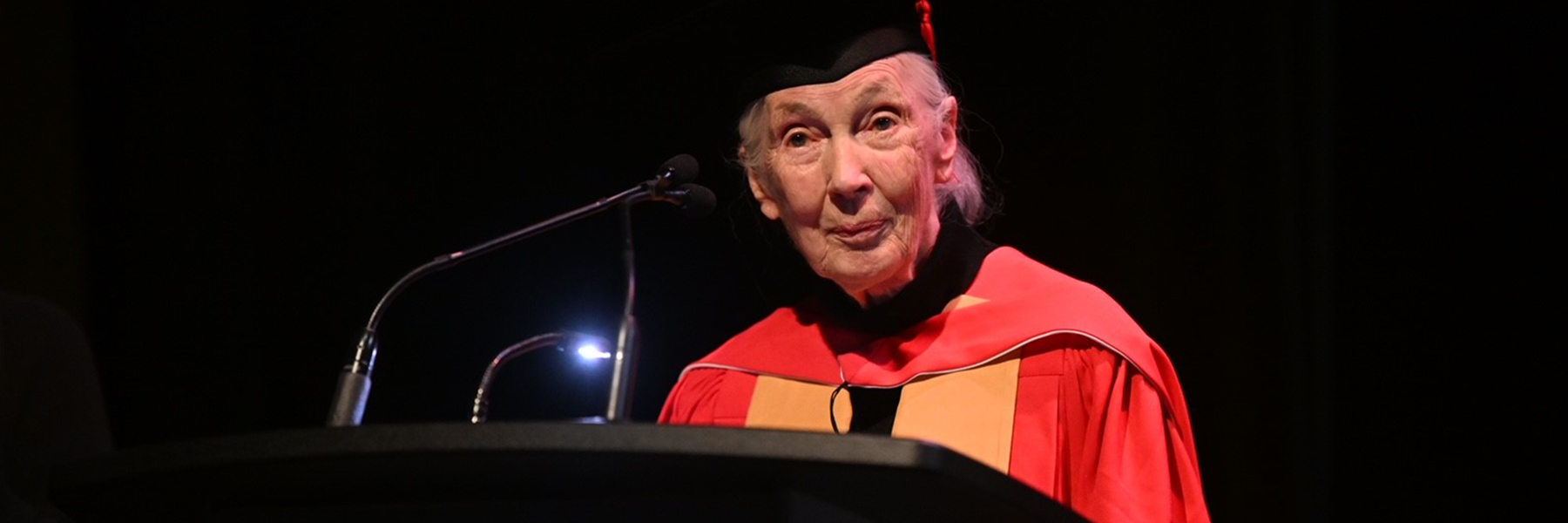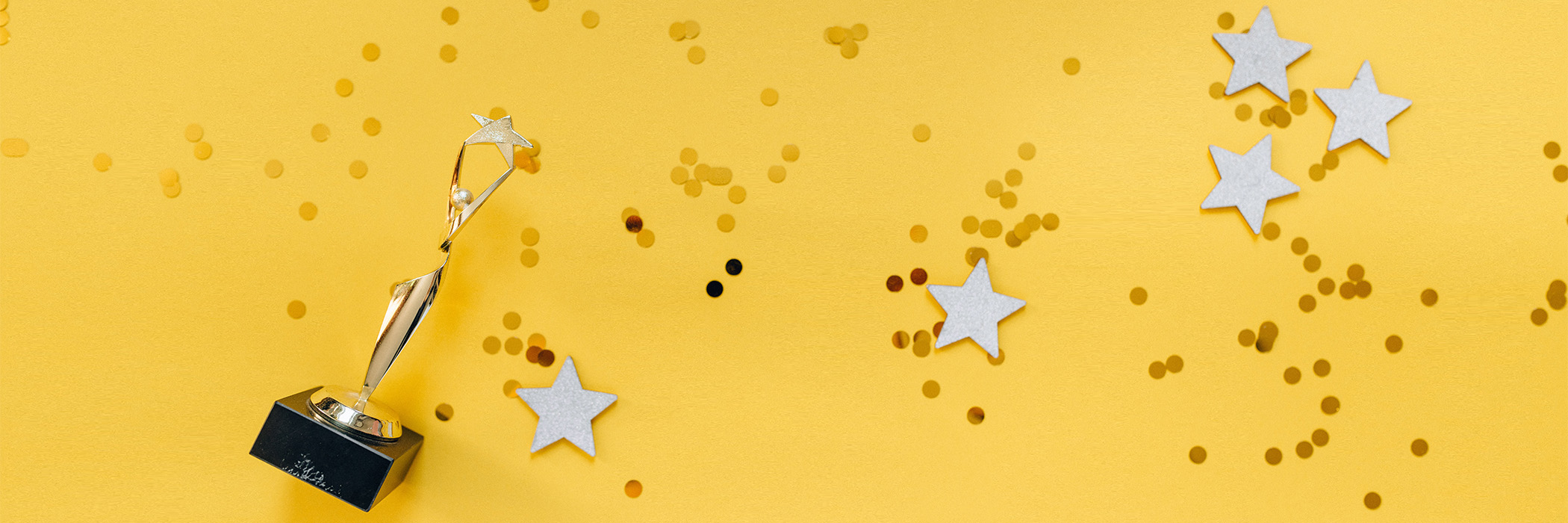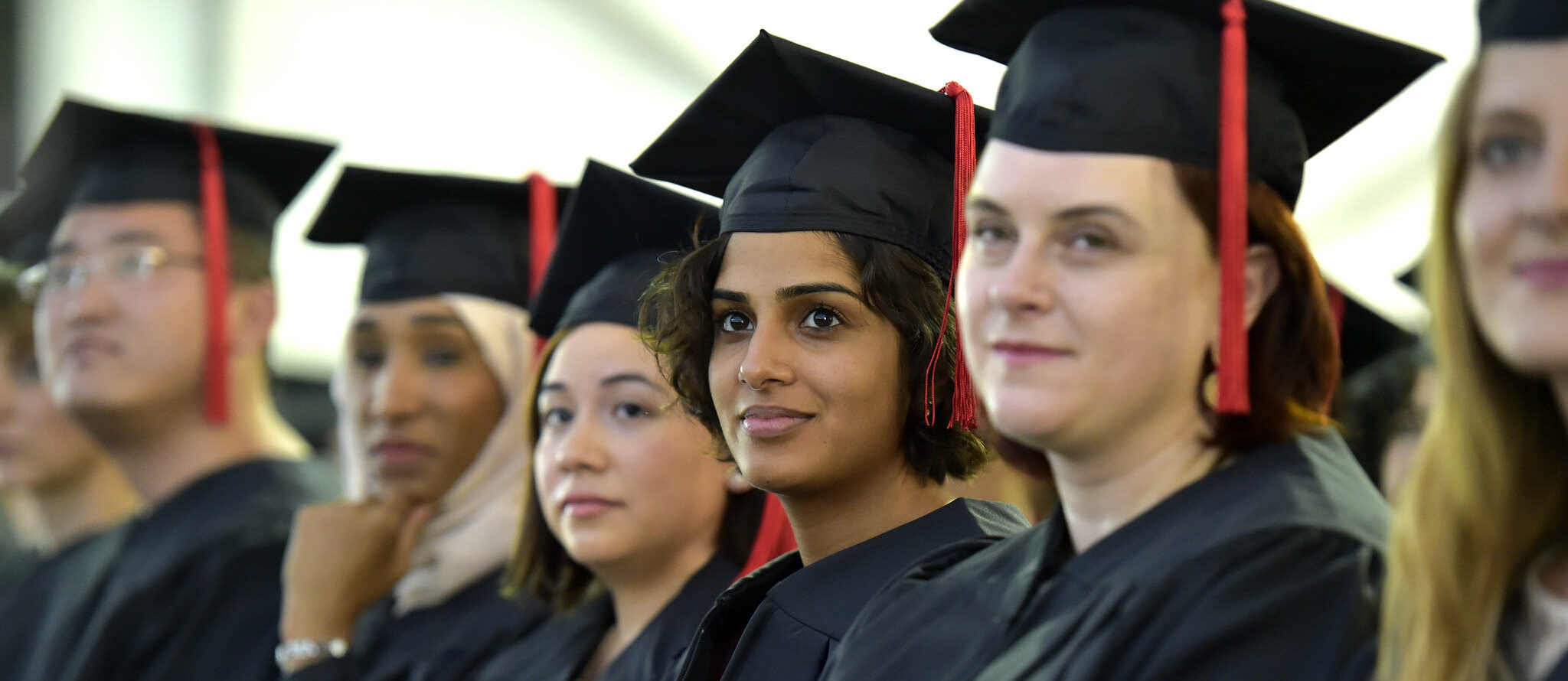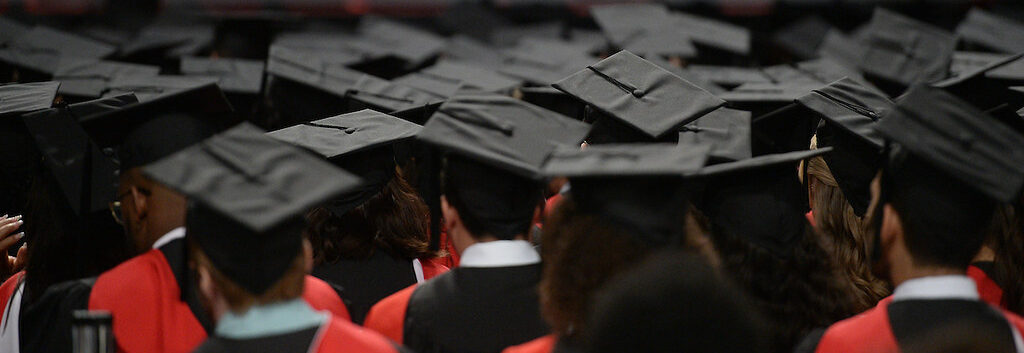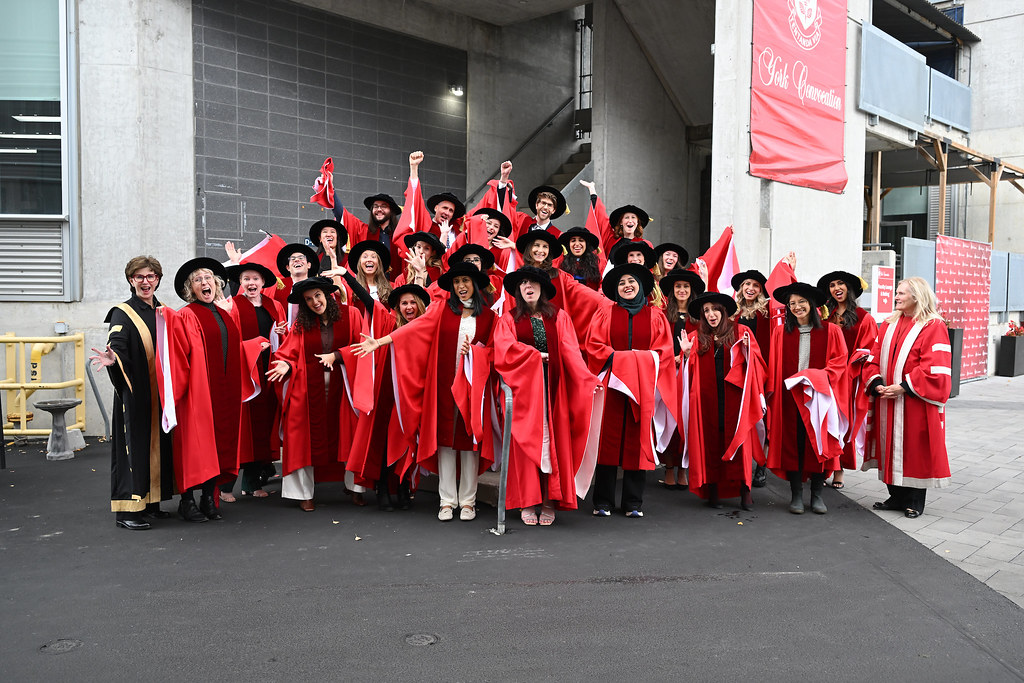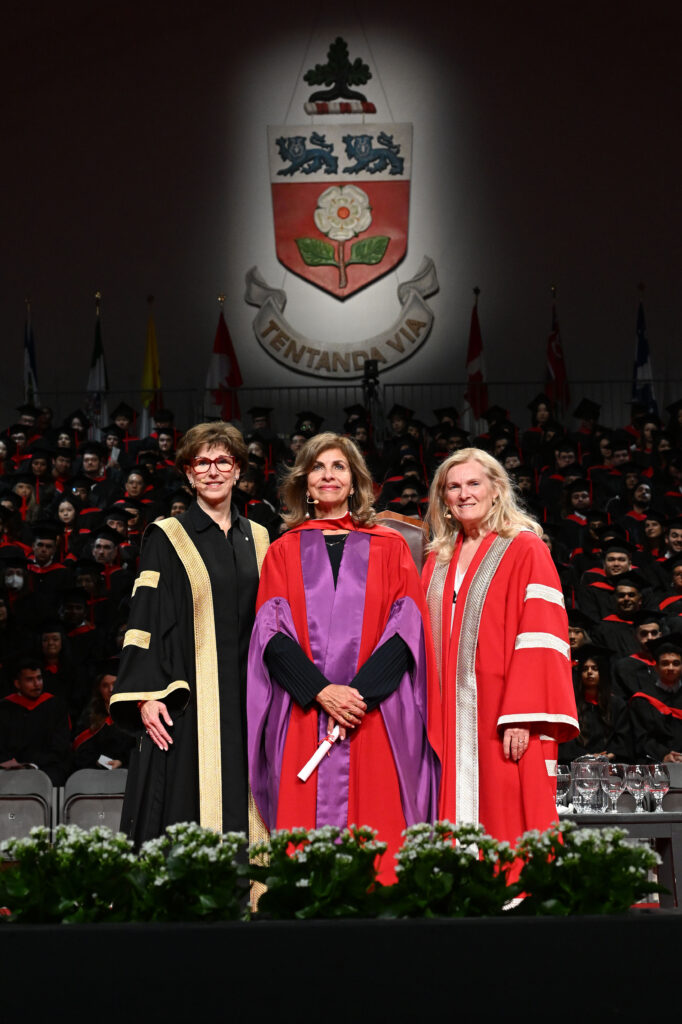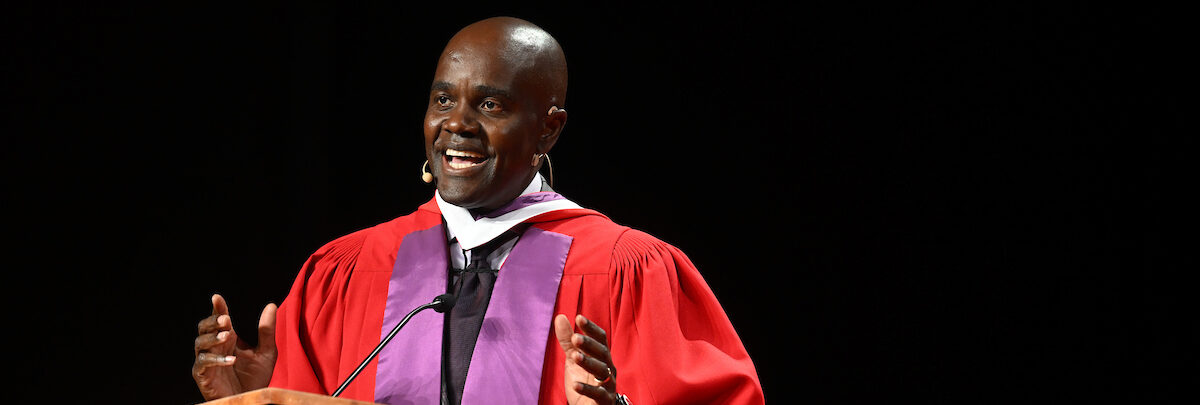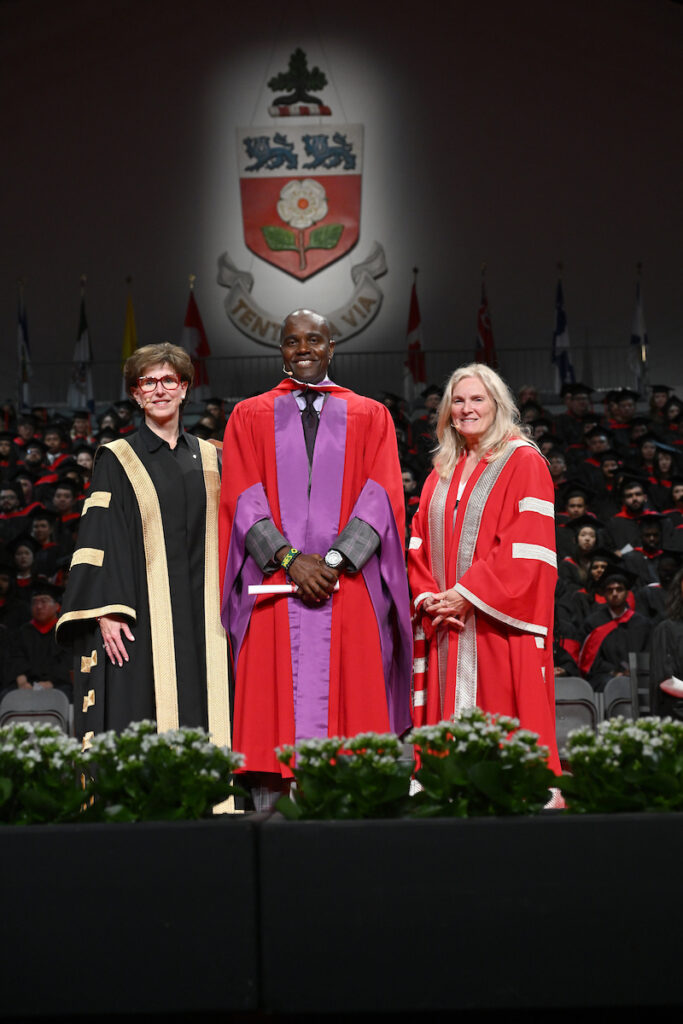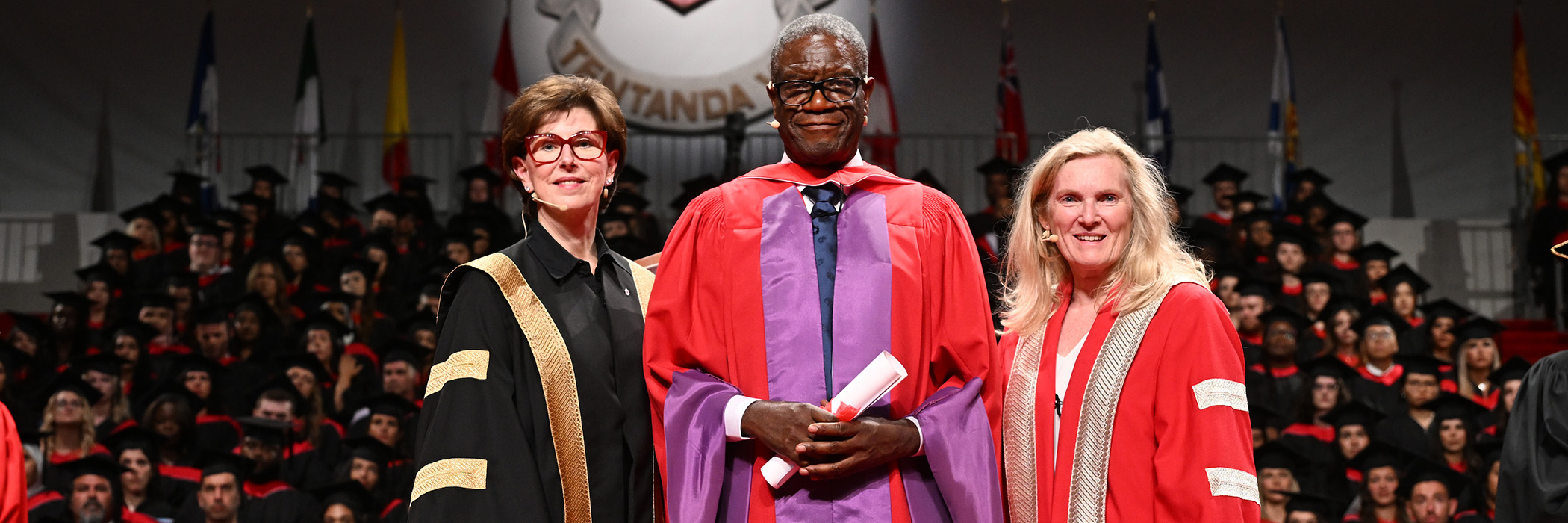On April 9, at a special ceremony to award Jane Goodall with an honorary degree, the renowned primatologist and anthropologist shared stories from her life and career with attendees. She also shared why – despite the immense challenges the natural world faces at the expense of climate change – she has hope for the future.
“I still don’t really understand what’s happened to me,” she told the York audience about a career that has led her to become one of the world’s most famous anthropologists and primatologists. Nonetheless, she made an attempt to help those in attendance understand how she became the world-renowned figure she is today from – what she considers – a simple beginning.
“I was born loving animals,” Goodall explained, recounting how as a young child she would climb a tree and watch birds, squirrels, spiders and other creatures. If she couldn’t observe the magic of the natural world directly, she’d read about it indirectly through fantasy-tinged books like Tarzan of the Apes and The Story of Doctor Dolittle. With both novels’ ties to Africa, a seed was planted early for Goodall: she wanted to see the continent herself.
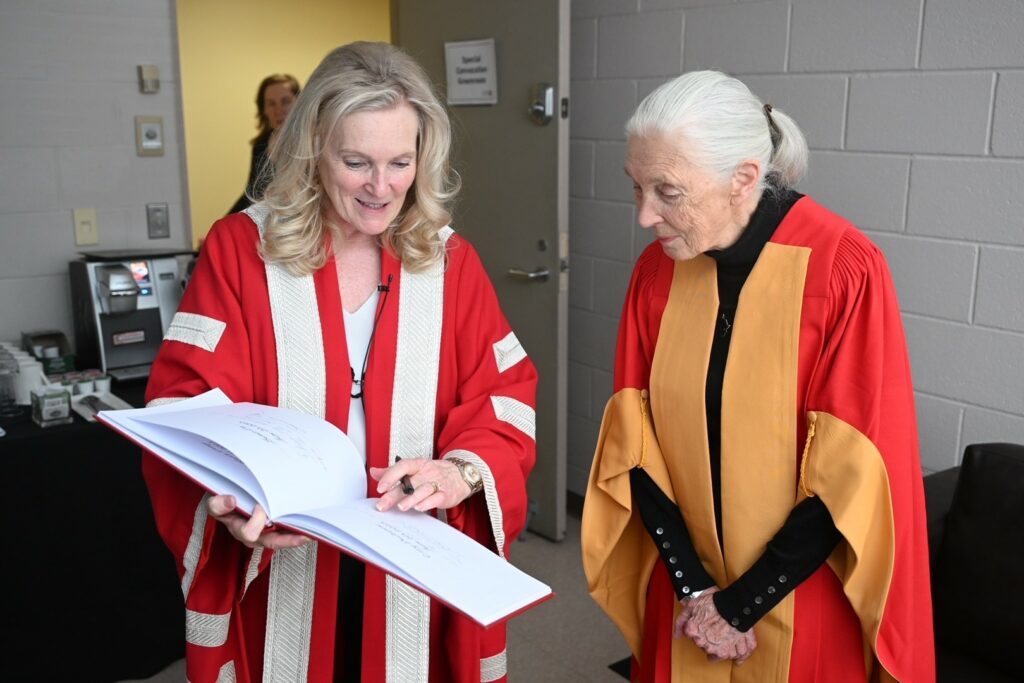
Goodall recounted how many questioned the logic of that newfound desire to travel to Africa and – perhaps – live with the wild animals like Tarzan and write books about them. “Everybody laughed at me,” Goodall said.
Throughout her address, she returned to the importance of the people most important to her journey, and among them was her mother who – even when she was young – never laughed at Goodall’s interest in animals. Once, when Goodall was very young, her mother found she had brought a handful of earthworms to bed. “Jane, you’re looking at them so earnestly, as if you’re monitoring how they’re walking without legs,” she noted. Then, very quietly, she nudged: “We better take them back to the garden.”
Goodall received a similar degree of gentle motherly guidance as she considered pursuing her interest in animals in Africa. “If you really want to do something like this, then you have to work really hard, take advantage of every opportunity, and if you don’t give up, hopefully you’ll find a way,” Goodall recalls her mother saying. “That’s the message I take around the world, particularly to young people, particularly to girls in disadvantaged communities.”
Goodall certainly took that message with her at the time, and did find her way to Africa, becoming a secretary to renowned British paleontologist Louis Leakey in Kenya. As Leakey began seeing Goodall interacting with local animals, he saw something in her. “He apparently decided that I was the person he’d been looking for to be the first to study chimpanzees in the wild,” Goodall said.
So, she did.
For a while, everything that would happen next – the exposure and support she received through National Geographic, the leadership she would demonstrate in guiding science to completely reconsider chimpanzee behaviour and more – would have seemed unlikely to Goodall when she began her immersive study.
The first few weeks were difficult. “For four or five months, the chimps took one look at me and vanished into the forest,” she recalled. She felt like she was making no progress. Goodall’s mother, who had volunteered to come with her to Tanzania, saw it differently, pointing to how in that limited time Goodall had already learned much about the chimpanzees: what they ate, how they communicated and what their communal dynamics were. “She said, ‘You’re learning more than you think,’” Goodall recalls of her mother.
Soon after there also came a turning point in the form of a chimpanzee she would come to call David Gray Beard. “He began to lose his fears [of me] before the others,” she said, which led to her getting close enough to him to observe an – at the time – revolutionary insight: chimpanzees could make and use tools. “That really changed everything,” Goodall said.
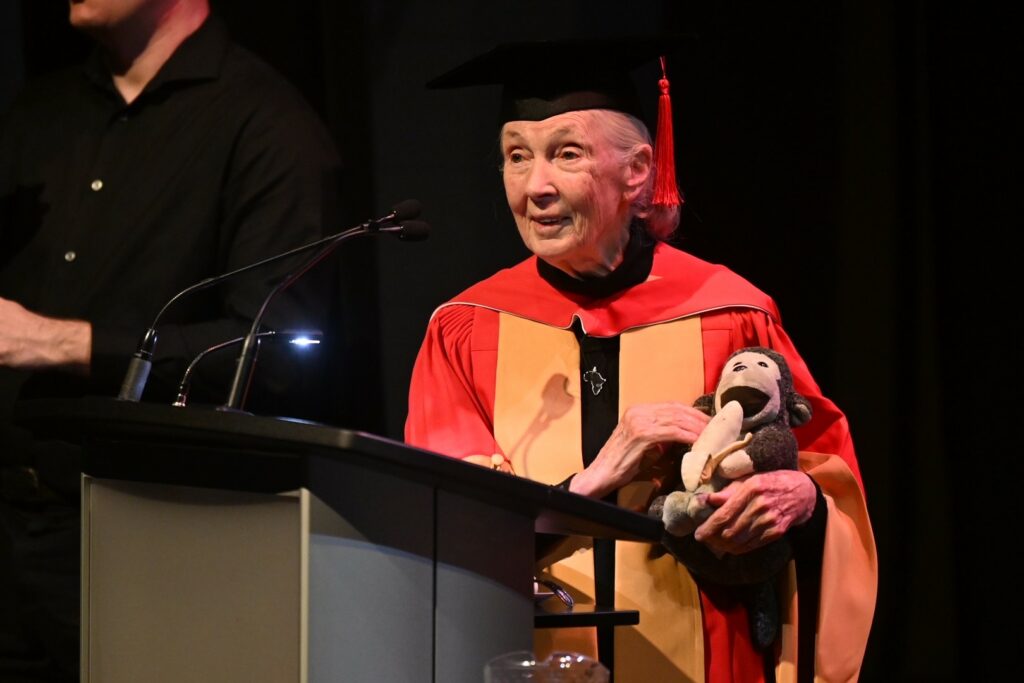
In time, Leakey wanted her work to be recognized by the scientific community, elements of which rejected her. Notably, they questioned the empathetic connection Goodall formed with the apes – something she, to this day, is known and beloved for. “’You cannot have empathy with animals and be a good scientist. You have got to be objective. You cannot be objective if you have empathy,’” she recalled being told.
That revolutionary empathy has been a landmark of not just Goodall’s work with apes, but advocacy for the natural world. That was something that especially flourished when she returned to Tanzania to start a research station after her first immersive study among the chimpanzees.
“I got to understand the ecosystem of the forest,” she said. “I see it as like a tapestry. And every time a species disappears from that ecosystem, you pull that thread from a tapestry. And if you pull in other threads, that ecosystem will collapse.”
She began to wonder what would happen if climate change were allowed to run unabated, or if humans don’t do something to control biodiversity loss. She could see first hand the impact poverty has on the environment, “because when people are poor, out in the rural areas, they’re destroying the environment simply to survive.” And the young people she would encounter were similarly concerned with the future. “Young people were losing hope. They were angry,” she said.
Addressing the students in the audience, Goodall admitted the old had have been compromising the future of the young for generations. However, Goodall said there is much that gives her hope. “If we get together, we can start to slow down climate change,” she said. She’s encouraged by many people throughout the world wanting to work to solve the challenges the Earth currently faces. “I’m sure there are students even right here working to try and solve particular problems,” she added.
“There is always hope,” she said. “We must never give up.”


